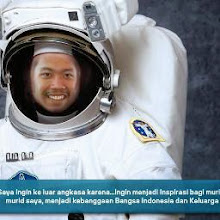“Space by itself, and time by itself, are doomed to fade away into mere shadows, and only a kind union of the two will preserve an independent reality”
Big Questions
What are the origin, evolution and fate of the Universe?
Two of the most profound questions that all cultures, both past and present, have asked are: where did we come from and what is our destiny? Throughout history philosophers, theologians, and scientists have debated these questions. NASA Science seeks to provide quantitative information pertinent to these basic elements of human curiosity by enabling scientists and engineers to construct instruments and make measurements on these topics that were once the purview of thought experiments only.
How do planets, stars, galaxies and cosmic structure come into being?
In order to understand how the Universe has changed from its initial simple state following the Big Bang (only cooling elementary particles like protons and electrons) into the magnificent Universe we see as we look at the night sky, we must understand how stars, galaxies and planets are formed.
When and how did the elements of life in the Universe arise?
Following the Big Bang and the gradual cooling of the Universe the primary constituents of the cosmos were the elements hydrogen and helium. Even today, these two elements make up 98% of the visible matter in the Universe. Nevertheless, our world and everything it contains—even life itself—is possible only because of the existence of heavier elements such as carbon, nitrogen, oxygen, silicon, iron, and many, many others. How long did it take the first generations of stars to seed our Universe with the heavy elements we see on Earth today? When in the history of the Universe was there a sufficient supply of heavy elements to allow the formation of prebiotic molecules and terrestrial-like planets upon which those molecules might combine to form life.
Is there life elsewhere?
Are we alone? This question is as old as humankind itself. For millennia, people have turned their eyes to the stars and wondered if there are others like themselves out there. Does life, be it similar to our own or not, exist elsewhere in our Solar System? Our Galaxy? Until some 15 years ago it was uncertain whether there were even any planets outside those in our own Solar System. Today we know of literally hundreds of planets orbiting other stars. Do any of these planets have conditions that would support life? What conditions favor the formation of terrestrial-class planets in developing planetary systems? NASA can help address these questions by developing missions designed to find and characterize extrasolar planetary systems.
Sources:NASA
فَإِذَا انشَقَّتِ السَّمَاءُ فَكَانَتْ وَرْدَةً كَالدِّهَانِ
37. Maka apabila langit telah terbelah dan menjadi merah mawar seperti (kilapan) minyak.
فَبِأَيِّ آلَاءِ رَبِّكُمَا تُكَذِّبَانِ
Akan tiba waktunya ketika langit—yang tidak dapat ditembus, terbatas, dan tampak kukuh—akan hancur. Kata syaqqa bermakna pecah. Ketika penciptaan terfragmentasi, keadaan lainnya akan menguasainya, keadaan yang didominasi oleh panas. Sekarang ini, panas berbagai planet dan bintang ada dalam keseimbangan.
Dalam sistem tata surya kita, contoh dari ketidakseimbangan dijumpai dalam bentuk bercak matahari. Setiap kali bercak-bercak itu terjadi pada matahari, pastilah ada gangguan dalam sistem tata surya, meskipun tidak cukup besar untuk merusak keseimbangan. Sistem kekuatan yang saling menyeimbangkan ini akan hancur manakala perjalanan di alam semesta ini mencapai titik puncaknya.
Hal sempa juga terjadi pada manusia. Sewaktu ia hidup, tubuh fisik dan spiritualnya ada bersama-sama. Manusia mengandung gema atau citra dari keseluruhan semesta. Semua fungsi dalam tubuh manusia ada dalam keseimbangan—seluruh fakultas atau kemampuannya, segenap muatan listrik yang mengalir melalui otaknya, dan beradaan berbagai syaraf.
Entitas menakjubkan ini akan hancur ketika jiwa pergi. Ia akan segera membusuk. Inilah yang akan terjadi pada langit: hukum-hukum yang menjaganya akan hancur sehingga langit akan terbelah.

























No comments:
Post a Comment